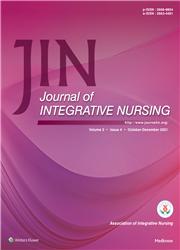Impact of designed infection control educational program on nurses' knowledge and compliance with standard precautions at maternity hospitals
Q4 Nursing
引用次数: 0
Abstract
Objectives: This study aimed to assess the nurses' knowledge and compliance with infection control standard precautions and evaluate the impact of the designed infection control educational program on nurses' knowledge and compliance with standard precautions at the maternity hospital. Materials and Methods: A quasi-experimental one-group pretest-posttest design was used on convenient sample of 60 nurses working at Obstetrics and Gynecological hospital in Cairo University Hospital, Kasr El Ainy, who received “designed infection control educational program” for 6 months. The data were collected through the questionnaire comprising demographics, knowledge, and compliance with standard precautions questionnaire. The nurses' knowledge and compliance score were compared before and after intervention. Results: The studied nurses had higher level of knowledge (85.3%) and compliance (92.8%) regarding infection control standard precautions after the educational program compared to before the program. The results revealed statistically significant difference between before and after the program regarding nurses' knowledge score (15.5 ± 2.9 vs. 17.1 ± 1.6, P < 0.001) and compliance score (58.5 ± 13.2 vs. 74.3 ± 5.1, P < 0.001). In addition, there was insignificant relation between nurses' knowledge and compliance with standard precautions both before (r = 0.952, P = 0.474) and after educational program (r = 0.164, P = 0.223). Conclusion: The nurses' level of knowledge and compliance regarding infection control standard precautions was significantly improved after the program. Therefore, it is recommended that periodical educational programs regarding the standard precautions of infection control are essential for nurses at maternity hospital.设计感染控制教育方案对妇产医院护士知识和遵守标准预防措施的影响
目的:本研究旨在了解妇产科护士感染控制标准预防知识及依从性,评价设计的感染控制教育方案对妇产科护士感染控制知识及标准预防依从性的影响。材料与方法:采用准实验的一组前测后测设计,方便抽样60名在开罗大学附属卡斯埃尼医院妇产科医院接受“设计的感染控制教育计划”6个月的护士。数据通过调查问卷收集,包括人口统计、知识和遵守标准预防措施问卷。比较干预前后护士的知识和依从性得分。结果:培训后护士对感染控制标准预防措施的知晓率(85.3%)和依从率(92.8%)均高于培训前。结果显示,护理知识得分(15.5±2.9比17.1±1.6,P < 0.001)和依从性得分(58.5±13.2比74.3±5.1,P < 0.001)在项目前后差异有统计学意义。此外,教育计划前(r = 0.952, P = 0.474)和教育计划后(r = 0.164, P = 0.223)护士对标准预防措施的知晓程度与依从性均无显著相关。结论:项目实施后,护士对感染控制标准预防措施的知晓程度和依从性明显提高。因此,建议对妇产医院的护士进行定期的感染控制标准预防教育。
本文章由计算机程序翻译,如有差异,请以英文原文为准。
求助全文
约1分钟内获得全文
求助全文
来源期刊

Journal of Integrative Nursing
Nursing-General Nursing
CiteScore
0.40
自引率
0.00%
发文量
3
审稿时长
17 weeks
 求助内容:
求助内容: 应助结果提醒方式:
应助结果提醒方式:


